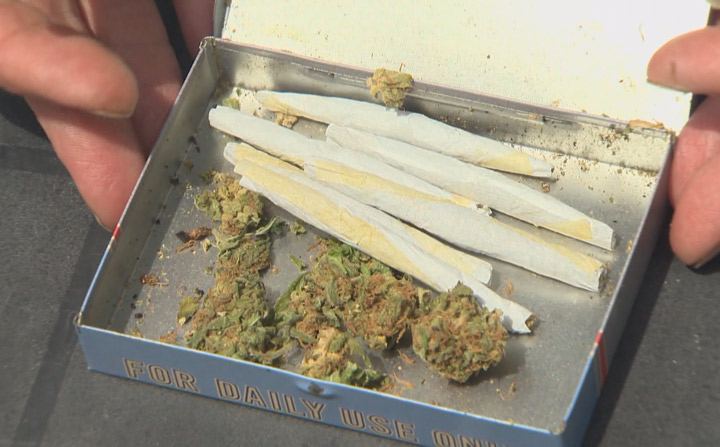SASKATOON – Mark Hauk, founder of Saskatchewan Compassion Club is preparing to open Saskatoon’s first medical marijuana dispensary.

“We’ll get the doors open,” said Hauk. “The club itself is doing a number of things in the way of helping people with medical approval,” he added, explaining the paperwork for medical approval can be onerous.
The store is planned for an undisclosed location in the Exhibition neighbourhood.
“A very small part of it is actually dispensing medicine,” said Hauk.

READ MORE: Saskatoon student in human rights fight over medical marijuana
“We would supply a small amount of edibles, oils, tinctures from producers our Vancouver way,” explained Hauk.
Through Health Canada, a doctors prescription gives patients legal access to medical marihuana. Legally it can only be purchased through any of the country’s 18 authorized licensed producers.
“They pretty much never have product,” according to Mandy Tarala, a medical marihuana user.

Get weekly health news
Tarala was diagnosed with Hidradenitis Suppurativa eight years ago. The disease creates tunneling boils which break through the skin causing oozing wounds. The condition left her crippled with pain and unable to work. In April 2014, she was prescribed medical marihuana.
“I did find that smoking cannabis doesn’t give me the same effect as ingesting it,” she said.
According to Tarala, smoking it only takes away the pain whereas ingesting it, has actually reversed the effects of the disease. One year after beginning the prescription, she has no open lesions and she’s able to work again.

Ingesting the product is illegal. Health Canada only allows the sale of dried cannabis. Tarala purchases the dried product from a licensed producer then, through an undisclosed connection, she has it made into the ingestible form.
Tarala is excited the Saskatchewan Compassion Club is planning to open a store, simplifying the process for medical marihuana users.
Saskatchewan Compassion Club hopes to obtain the lease this week. Along with consultations, Hauk would sell product including dry marijuana along with oils, edibles, and tinctures which are all illegal.
Some Canadian cities have attempted to restrict dispensaries by creating a bylaw that restricts where the stores can open. The City of Saskatoon has no plans to create a similar bylaw here.
“The city does not regulate stock or product being packaged/sold,” according to a written statement from the city.
But the Saskatoon Police Service does regulate this according to Insp. Jerome Engel.
“Doesn’t matter if there’s a bylaw or not,” explained Engel. “There’s a criminal code. You’re not allowed to posess, deliver, sell any controlled substance.”
Police said if the store opens it will be investigated, and charges will be laid for any criminal activity found.
But according to Hauk, there’s a loophole.
“Law is typically black and white,” said Hauk. “Where the grey area has been created is, there’s a gap between the laws or the regulations that Health Canada has made around medical marihuana, and then there’s this big gap in what the courts are willing to prosecute,” he explained.
There are several cases currently before the courts. More than 100 illegal dispensaries are in operation in Canada.



Comments